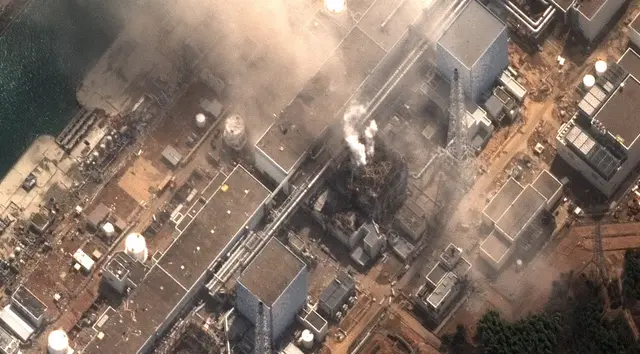Recent tests carried out by the Tokyo Electric Power Co.(TEPCO) found little or no nuclear fuel in its original location inside some reactors at the Fukushima plant, a nuclear expert told Xinhua in an interview.
Jonathan Cobb, senior communication manager of the London-based World Nuclear Association, said this after the Japanese company was again suspected to have delayed the disclosure of a meltdown five years ago.
A report published earlier this month said TEPCO's former head Masataka Shimizu instructed staff not to use the term "core meltdown" in describing the situation at the Fukushima Daiichi nuclear complex when the nuclear disaster first struck in March 2011 following a powerful earthquake.
"There is no precise definition of a meltdown, but it represents a significant level of core damage where most of the reactor core has melted," said Jonathan Cobb, senior communication manager of the London-based World Nuclear Association.
According to media reports, TEPCO had defined a meltdown as damage to more than 5 percent of the fuel in its internal manual, but the company eliminated the definition from the manual in revisions after the Fukushima disaster.
Inside-the-reactor images that TEPCO managed to get recently showed that there is "little or no fuel to be present where it normally operates in the reactor" so the utility giant concluded that most of the nuclear fuel has melted and fallen to the bottom of the reactor pressure vessel, Cobb said.
"It is true that TEPCO initially underestimated the amount of damage there had been to the fuel cores of the three affected reactors. That there has been more extensive melting will mean it will be more challenging to eventually extract the fuel from the reactors," he added.
On TEPCO's ongoing project of "ice wall" -- an underground wall of frozen soil designed to prevent contaminated groundwater from leaking into the environment, Cobb said it should further help reduce the inflow of groundwater into the site, but he also warned that such projects should be introduced cautiously to ensure that they are working as expected.
While noting that TEPCO and the Japanese government have been providing "a huge amount of information and data" ever since the accident occurred, Cobb said they often failed to give enough context and explanation to help people understand such information.
(APD)
 简体中文
简体中文












